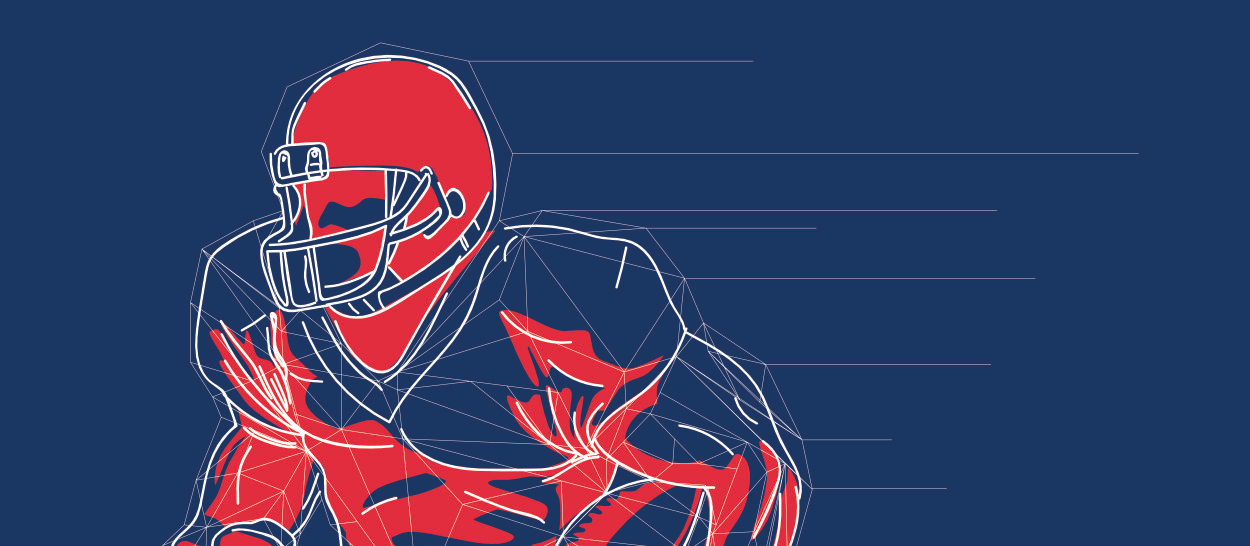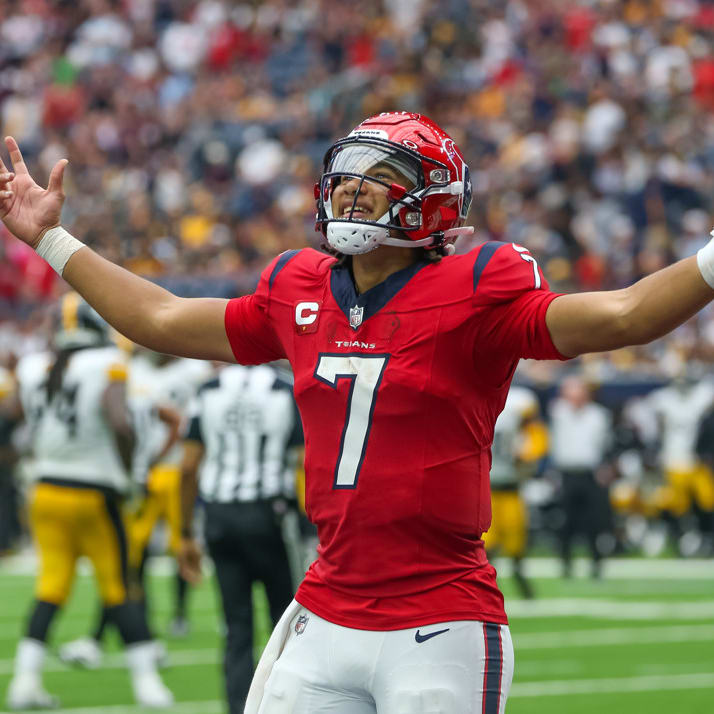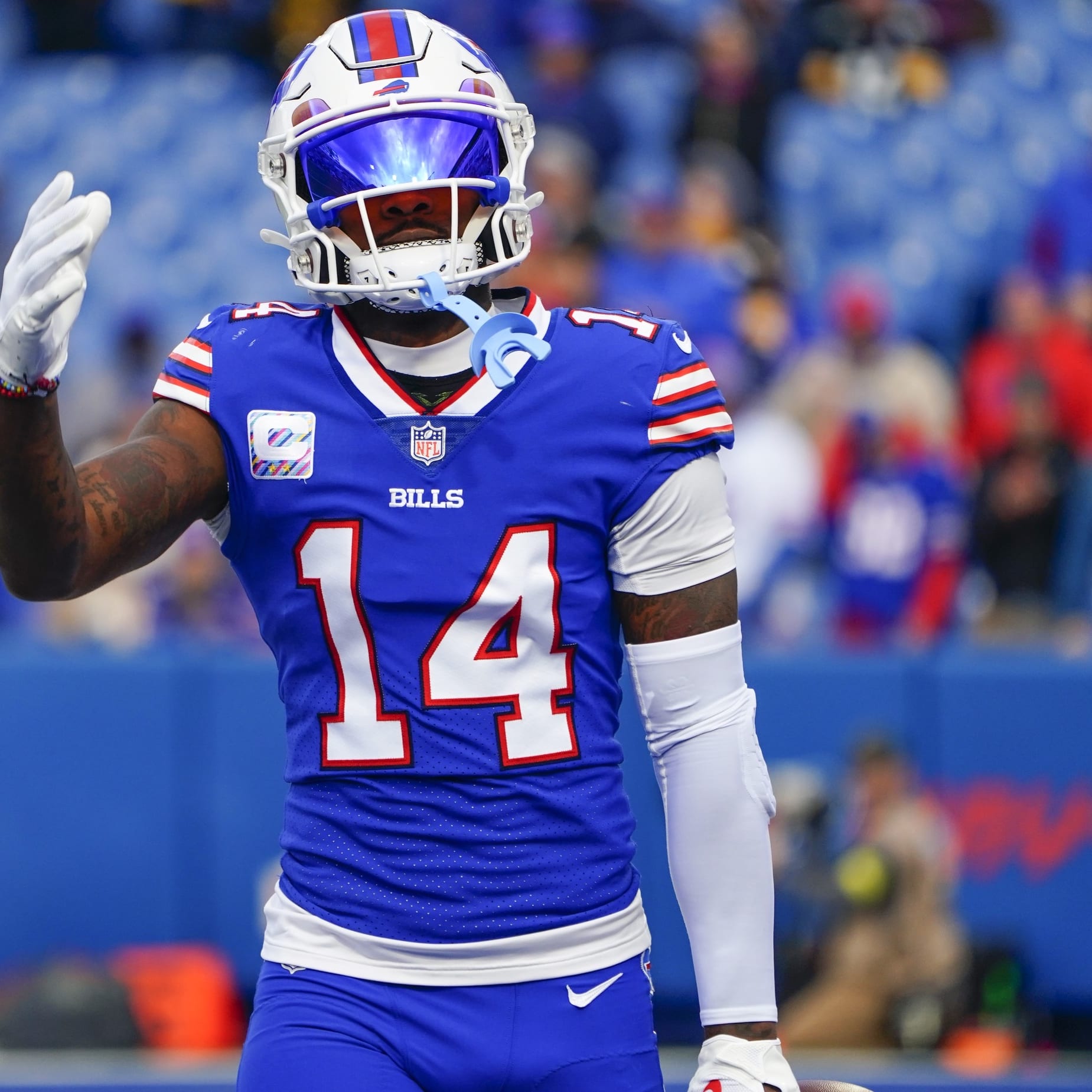This article is part of our East Coast Offense series.
East Coast Offense
This is the ninth year I've written this column - crazy it's been that long. I remember coming up with the stupid title like it was 2006. Last year, I finally scrapped the Survivor and Beating the Book sections because committing to both on the Tuesday deadline was messing up my process for the full columns later in the week. This year, the column will be shorter, with some of the thoughts and observations finding their way into the blog throughout the week. It'll fit my schedule better and give some ideas more time to develop. While it's great to have Thursday night football games - it squeezes the NFL-content-producing process too much at times. For Survivor and Beating the Book, there's not much we can do about it, but this one is less about utility than perspective, so it can stretch out.
The Josh Gordon Exercise
For most of the summer I advocated drafting Gordon aggressively, in essentially the last round you'd ensure getting him. For many that was the seventh or eighth, but I actually took him in the fifth in a high-stakes league where the overall prize is a big part of the entry fee.
Since then, Gordon has, of course, lost his appeal and been suspended for the year, pending the chance he sues the NFL and wins a temporary restraining order.
This has obviously sunk his stock - whereas before Gordon had outs on the turn, that was a blank, and now we're down to the river. But whether or not Gordon drafters ultimately make their hand, it's worth considering the process. If you're getting 10:1 on an open-ended straight draw, you call, and that decision doesn't become wrong just because you didn't ultimately get there.
The poker analogy is imperfect, however. With cards we can know the precise odds of making an open-ended straight because they have fixed values, and the math is straightforward. With a administrative proceeding we could only estimate based on precedents, like the StarCaps case where Kevin and Pat Williams successfully won a restraining order and played for two seasons before eventually serving their suspensions, the underlying facts (Gordon's positive test result was barely over the threshold for the NFL, his confirmatory test was below it) and what we know about the NFL (they don't seem to care much about societal trends or notions of proportionality.)
So maybe instead of an open-ended straight, Gordon was only holding a gut-shot - or worse. That's a fair position to have held, assuming you took the time to assess the relevant factors. Based on one outcome, we'll never actually know, but that doesn't mean my optimism wasn't off base, either. Still, whatever hand you deemed Gordon to have had you were more correct in your process than those who simply assumed he'd be suspended and didn't take the analysis any further. "Let him be someone else's problem" isn't sound strategy - it's laziness. You could have let Clayton Kershaw be "someone else's problem" late in the first round this year too when it was announced he'd go on the DL.
When we assess players there are typically four factors we have to aggregate into a value: health, skills, role and team context. Gordon shows there is a fifth (eligibility). Just as you shouldn't cross players off your list entirely due to elevated health risk, crossing them off your list entirely (or refusing to calculate risk and reward) due to eligibility risk is similarly wrong.
Personally, though it's likely to hurt a few of my teams, I enjoyed the exercise. Delving into the facts of Gordon's case and getting explanations from legal experts in an effort to find value for my fantasy team widened the scope of my work. I actually learned something. And until Gordon officially declines to sue, or loses his application for a temporary restraining order (we'll likely find out by Wednesday), I'm holding onto him in every league.
Non-Obvious Predictions for 2014
I do this every year, some with more success than others. For last year's click here.
Here are 2014's:
•: Victor Cruz will catch 95 passes in the team's new offense, and the Giants will make the playoffs.
•: At least one of RGIII, Andrew Luck or Nick Foles will outscore one of Aaron Rodgers, Drew Brees or Peyton Manning.
•: Michael Floyd will outproduce Larry Fitzgerald.
•: Hakeem Nicks will outproduce Reggie Wayne.
•: Percy Harvin will be a top-12 WR.
•: Kenny Stills will outproduce Brandin Cooks in non-PPR.
•: One of last year's final four (Broncos, Patriots, Seahawks, 49ers) will miss the playoffs.
•: Andre Johnson will be a top-10 receiver.
•: Johnny Manziel will be a top-12 QB from his first start until either the end of the year or he gets hurt.
•: Alex Smith will be a top-12 QB.
•: C.J. Spiller will eclipse 1,500 yards from scrimmage.
•: Julian Edelman will not catch 70 passes.
•: One of Ryan Tannehill, Geno Smith or EJ Manuel will be a top-15 QB.
•Alfred Morris will outproduce Marshawn Lynch.
•: Tom Brady and Matt Ryan will outproduce Matthew Stafford.
•: Either Ben Tate, Trent Richardson, Ray Rice, Toby Gerhart or Rashad Jennings will finish as a top-7 RB. At least two will be outside the top 40.
•: Aaron Dobson will be a top-20 WR.
•: At least one of Colin Kaepernick and Jay Cutler will fail to be a top-15 QB.
•: At least one of these teams - Raiders, Browns, Bills, Redskins, Vikings, Jaguars, Buccaneers or Rams - will make the playoffs.
•: I will regret not having Andre Ellington on any of my teams for at least a few weeks*.
•: Some of these predictions will be wrong.
* I still have my NFFC Main Event team to draft on Saturday, so it's possible (1 in 14) I get him there.
Predictions vs. Projections
One reason I like to make non-obvious predictions here is I can't in good conscience project a lot of these results. Even if I think Aaron Dobson has a good chance to break out this year, it would be bad drafting advice to have him as my No. 20 receiver. Projections make you take everything into account including the possibility you could be wrong about your outler opinion on a player. They're necessarily safe and middle of the road - so much so I have little interest in how well my projections fare vs. someone else's - at least the way they're commonly graded. Projected stats don't look anything like actual year-end stats because they're looking at players' 50th percentile seasons. At the end of the year, you know some players will have their 90th percentile seasons and some their 20th. Because it's hard - some would say impossible - to predict which players will go 90 and which 20, we give them all 50 (or close to it) and generate a much more condensed set of outputs than is realistic.
Moreover, if I don't like Julian Edelman - and I don't - and I give him a lower projection than most - 80 catches/5 TDs - he'll be ranked low enough on my sheet that I'll never get him. But even if he catches only 40 balls and becomes marginalized in the offense, my projection is no better than whoever was next lowest on him because he won't get Edelman, either. So it doesn't really matter that I was more accurate because for drafting purposes, it got us the same result.
I would be interested in a projections rating system that figured out which players you were most likely to get or avoid based on your rankings vs. the rankings of others, and grade them based on simulated drafts. You'd probably have to restrict each draft to one-position only, but you could see in millions of drafts how many times you got each receiver (based on random draft slotting), running back, quarterback, etc., and you could grade accordingly.
It might turn out that the guy making wild predictions rather than sober projections usually won the actual league, because his outlier rankings got him the best groupings of players. The sober projector would almost certainly be better (or less wrong and by a smaller margin) on average about players, but he might not assemble a better team, especially against tough competition. The one other variable for which the projections-rating system would have to account, however, is ADP - because even if I had Dobson as my 20th receiver, and I truly believed that, I wouldn't take him in the fourth round because I know he'd be there in the eighth. That brings me to my next point...
ADP vs. Projected Stats
No matter how good your projections (or predictions) are, your draft strategy needs to account for ADP for the reason above. While no one knows what's going to happen in any given NFL season, I can without reservation pronounce a second-round pick to be a mistake if the player taken had a 99.99 percent chance of being available in the third. So no matter how accurate your projections are, you must take ADP into account when drafting in order to maximize value.
This also has implications for deciding between players at different positions. If in a 12-team league you were choosing between a running back, say DeMarco Murray, and a quarterback, say Peyton Manning, in Round 2, it might be the case that Manning scores more projected points relative to the No. 12 QB than Murray does relative to the No. 24 (or No. 30 RB, assuming there's a flex). But as Numberfire's J.J. Zachariason pointed out there's an additional opportunity cost to drafting Manning, namely the cost of getting Murray's replacement. Because if you draft a QB rather than an RB, you'll have to get that RB later. And in most 12-team 1-QB leagues, that replacement RB will cost you a fifth- or sixth-round pick, while the replacement QB might be an eighth or a ninth. Essentially, it's cheaper to replace Manning and therefore cheaper to draft Murray at the same ADP. That difference in value has to be also taken into account when calculating their respective values above the baseline. Of course, value-based drafting has other problems too.












